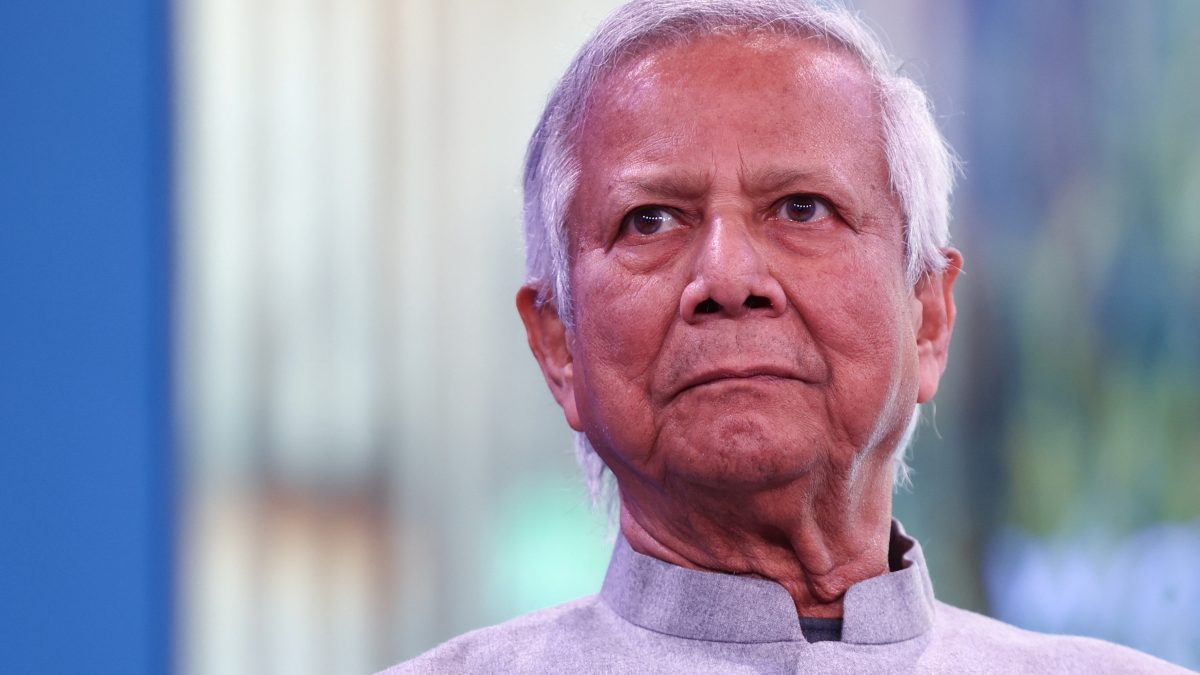According to media sources, Bangladesh’s interim government leader, Muhammad Yunus, summoned an impromptu meeting of the advisory council on Saturday to discuss a growing crisis between his administration, political parties, and the army.
“He is likely to sit with the Advisers (effectively ministers) shortly after the ECNEC (Executive Committee of the National Economic Council) meeting,” which is underway as scheduled, the UNB news agency reported, quoting an unnamed official familiar with the process. It did not give any further details.
Yunus will remain as the head of Bangladesh’s interim government, an adviser in his cabinet said on Saturday, two days after a key ally said he mulled resignation.
“He (Yunus) didn’t say he will leave. He said that while we face many obstacles in carrying out the work and responsibilities assigned to us, we are overcoming them,” Planning Adviser Wahiduddin Mahmud told reporters after an unscheduled meeting of the advisory council.
Mahmud added: “He (Yunus) is definitely staying.” He added that none of the advisers were going anywhere as “the responsibility entrusted to us is a significant one; we cannot abandon this duty".
The chief adviser’s decision to stay in office came two days after he told student-led National Citizen Party (NCP) leaders that he was mulling resignation as he felt “the situation is such that he cannot work", citing difficulties in working amid the failure of political parties to find common ground for change.
Impact Shorts
More ShortsYour browser doesn't support HTML5 video.
Yunus is scheduled to meet with his advisers before meeting with former Prime Minister Khaleda Zia’s Bangladesh Nationalist Party (BNP) and Jamaat-e-Islami later on Saturday.
According to the chief adviser’s press wing, a BNP delegation will meet with the main advisors at 7:00 p.m., followed by Jamaat leaders at 8:00 p.m.
“We have been invited by the Chief Adviser’s Office to hold a meeting over the latest political situation,” a BNP spokesman told the media earlier.
On Thursday night, Yunus told Student-led National Citizen Party (NCP) leaders that he was mulling resignation as he felt “the situation is such that he cannot work".
This came hours after he reportedly expressed an identical desire to quit in a cabinet meeting earlier in the day.
NCP convenor Nahid Islam said he urged Yunus “to stay strong for the sake of the country’s security and future and to meet the expectations of the mass uprising’ (and) I hope everyone will cooperate with him”. Advisers of Yunus’ cabinet also persuaded him to not relinquish the post.
A number of high-ranking BNP officials, including as Salahuddin Ahmed and Abdul Moyeen Khan, stated that the party hoped Yunus would preside over an early general election and leave with honour rather than resigning suddenly.
Following the student-led movement that deposed ex-Prime Minister Sheikh Hasina’s Awami League rule in August last year, the BNP has emerged as a prominent political force.
Jamaat, which looked to merge with the NCP as the BNP distanced itself from its old ally, stated that a fair election was the only way to regain public trust.
“The government has said that elections will be held between December and June. Now, a specific roadmap needs to be announced within this period—not just elections, but also a roadmap for structural reforms in politics and state governance,” said key Jamaat leader Syed Abdullah M Taher.
However, Syeda Rizwana Hasan, a key adviser in Yunus’s cabinet, said the interim government was not formed solely to hold elections but also to implement reforms and ensure justice.
“I would put it like this – we had a long discussion…We have three major responsibilities, all of which are difficult: reform, justice and election. We did not take charge just to hold an election,” she said.
The development of Yunus’s resignation came amid reports of discord between the military and the interim government over the possible timeline for holding the parliamentary elections and a policy issue related to Bangladesh’s security affairs involving a proposed humanitarian corridor of aid channel to Myanmar’s rebel-held Rakhine state.
Army chief General Waker-Uz-Zaman along with the navy and air force chiefs met Yunus three days ago and reportedly reiterated their call for election by December this year to allow an elected government to take charge and conveyed their reservation about the corridor issue.
The next day, Zaman held a senior officers meeting at Dhaka Cantonment and said he was unaware of several strategic decisions despite the military’s active role. Analysts saw the meeting as a move to consolidate the military strength and Yunus’s resignation threat as a test of public backing.
During last year’s protests, the army avoided a crackdown, instead extended its hand for Hasina’s safe exit to India. It also supported Yunus’ appointment as chief adviser, as demanded by the SAD, much of which later formed the NCP.
Yunus’s administration recently disbanded Hasina’s Awami League, sending many of its senior leaders, including former ministers, to jail to face trial for charges like crimes against humanity.
Yunus has been facing calls from the political parties, including the BNP, to announce a date for the next elections. His reported threat to resign came a day after the party rallied thousands of supporters to stage a large-scale protest demanding an election at the earliest.
This week, the party also demanded the removal of the remaining student representatives from the cabinet, while the NCP in response called for the ouster of two advisers alleging that they were serving the BNP’s purpose by staying in the government.
The South Asian nation of some 170 million people has been in political turmoil since the ouster of the past regime but it escalated in the past several days with rival parties and trade unions or pressure groups protesting on the streets of the capital Dhaka with a string of competing demands.
)